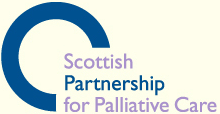- SPPC Achievements 2024-25
- Annual Conference 2025: From System Holes to Whole System
- Call for Posters
- Assisted Dying Bill - Perspectives Informed by Palliative Care
- SPPC’s response to the public consultation on the SG Strategy for Palliative Care
Royal College of Physicians, Edinburgh
Monday 30 May 2022
The SPPC team held a very successful annual conference which featured a mix of high quality speakers and delegate interaction. This was the programme and the speaker presentations are available to download below.
The conference provided an opportunity to:
- Pause to reflect on the past 2 years
- Hear about new approaches and practice which offer hope for improvement
- Hear challenging perspectives and energising inspiration
- Input to the development of the forthcoming Scottish Government strategy for palliative and end of life care
- Catch up with colleagues and make new connections.
Population Health
The event was broadly framed by exploring how a population health approach can improve people’s experiences of living with serious illness, dying and bereavement. Topics included aspects of organisation and delivery (planning/commissioning, unscheduled care, tacking inequities, use of outcomes) as well as practice-related topics (dementia, carer support, psychological approaches, wellbeing, spiritual care).
Annie’s Story
Woven through and unfurled over the course of the day, Annie’s story was told – grounding the bigger picture in the individual and the personal.
Speakers
Fliss Murtagh, Professor of Palliative Care, Hull York Medical School

Stop flying blind! Using outcomes to illustrate value, inform commissioning, and improve services
Check out Fliss' presentation here
Michael Cholbi, Chair in Philosophy at the University of Edinburgh

Why we should be glad for grief? A guided tour of what philosophers have said about grief, arriving at a reflection on the value of grief.
Check out Michael's presentation here
Ivor Williams, Lead for End-of-Life Care at the Institute of Global Health Innovation and Helix Centre, Imperial College London

"Tired, unsure but wanting to care" Designing a digital platform to support families as they look after loved ones in the last phase of their life, including support for sub-cut injections
Check out Ivor's presentation here
Kirsty Boyd, Reader in Palliative Care, Usher Institute, University of Edinburgh

"If I phone an ambulance, they're duty bound to take you to hospital, but I didn't want to go ...." Exploring the decisions and experiences of the public when seeking unscheduled care
Check out Kirsty's presentation here
Mark Evans, Scottish Government Spiritual Care Advisor & National Operational Lead for Spiritual Care. Head of Spiritual Care & Bereavement Lead NHS Fife

"For such a time as this" An opportunity to acknowledge collectively the past two years
Check out Mark's presentation here

Michael Loynd, Macmillan Clinical Programme Director, End of Life Care Together and Kenny Steele, Co-Chair, End of Life Care Together Partnership and CEO Highland Hospice
"End of Life Care Together" What is a population approach to end of life care? What part can it play in tackling the enduring deficiencies and inequalities which successive endeavours have failed to eliminate?

Check out Michael and Kenny's presentation here
Naomi Richards, Lecturer in Social Science, Director of the Glasgow End of Life Studies Group, University of Glasgow

The other "P" word: dying, loss and poverty in Scotland. What is really known about social deprivation and the end of life in Scotland? What can be learned from attempts to tackle disadvantage during earlier phases of life? How might changing thinking about "poverty" inform future action?
Check out Naomi's presentation here
Juliet Spiller, Consultant in Palliative Medicine, Marie Curie Hospice Edinburgh, David Gillanders, Head of Clinical Psychology, University of Edinburgh and Anne Finucane, Marie Curie Senior Research Fellow, University of Edinburgh

ACT-ing for self-care in palliative care. Acceptance and Commitment Therapy (ACT) as an intuitive model for staff sustainability and patient benefit in palliative care – it’s easier than you think… This interactive session will involve an overview (ACT), a review of the evidence for ACT in palliative care, a summary of findings from our latest study on ACT to promote staff wellbeing, alongside opportunities to try out and watch some ACT techniques.


Check out Juliet, David and Anne's presentation here


